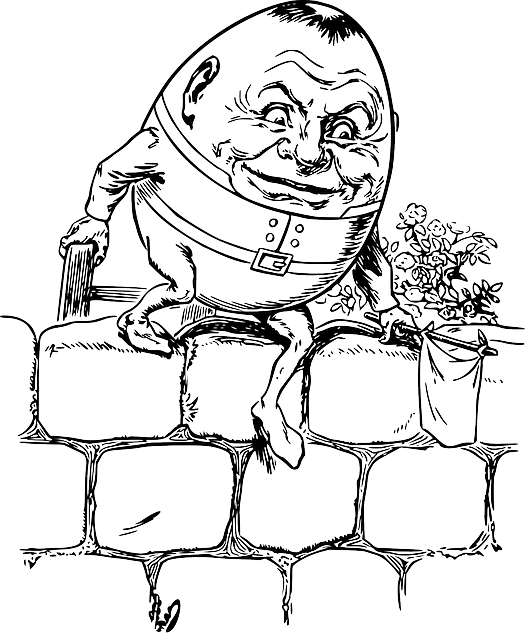I’m enjoying Nalini Singh's Psy-Changeling series and I've been struck by one of the major themes running through all the entries. In each book, the protagonists, both Psy (who are cerebral beings conditioned not to feel emotions) and Changelings (shapeshifters who are very passionate and physical by nature) are called to leave their comfort zones again and again. Sometimes the foray outside the zone is incremental and sometimes it is exponential. But however they get there, and the how and why is what makes up the plot, of course, they all have to go. And the process is both fascinating and instructive.
What is our comfort zone? I think most of us don't really know. I think we go through life living in it and avoiding going out because we experience leaving as discomfort. And who wants to be uncomfortable? Like when the doctor says, no it isn't going to hurt, it's just "uncomfortable". Yeah, right. I've heard that before and it's a crock of you know what.
But sometimes, life forces us from our comfort zones, just like in Ms. Singh's entertaining novels. In most paranormal fantasy, the circumstances that require a foray beyond the zone usually involve life and death in a way that that leaves little room for decisions. In the current book, Hostage to Pleasure (OK, at this point I'm repeating the titles just as a hoot-- hostage to pleasure? Really?! I mean, hokey titles are fun, I guess, but we are really scraping the bottom of the barrel here, folks). Anyway, back to my comfort zone (actually, getting caught reading a book called "Hostage to Pleasure" would definitely take me out of my comfort zone--oh, wait-- everyone now knows I read smut, so it's OK!).
Now I'm really going to get back to the subject at hand—comfort. We all seek it and seek to avoid its opposite. In fact, human beings will go to great lengths to stay comfortable, including tolerating the devil you know, a concept I understand in theory, but not in reality. Why would you take certain hell for a possible reprieve? Even if the possibility of worse also exists? But we do, almost every time. Because, as a species, we are risk averse. We don't like to take chances. But it is in the chances that growth and progress can occur.
In the current book, Ashaya, a Psy, is called—repeatedly—to leave the comfort zone of shields and silence that have kept her safe her entire life and protected the son she loves. Her putative Changeling lover, Dorian, pushes her to creep ever-closer to experiences and emotions that are wholly new for her. She is terrified, excruciatingly uncomfortable and totally overwhelmed by his love and his hunger for her. We are meant to feel her conflict and her inevitable approach to the event horizon. And we do. Ms. Singh does an excellent job of conveying the contradictory arguments and counterarguments that take place in Ashaya's mind. We are right there with her as she contemplates her jump off the cliff. And we also get to feel vicariously the rewards of leaving the zone, which in her case are both sensual and practical.
I was certainly entertained. In many ways. And, as these books so often do, it made me think. And what I thought was, wow, Ashaya is so lucky. And not just because she has a lover who actually stopped to consider what it would take for a woman like her to be sexually satisfied (which, in her case, included engaging her intellect as well as her body). But also because there was someone to push her out of her comfort zone so she could become more of the person she was meant to be.
If you read the book, and I sincerely hope you will, as this series, like Ms. Singh's Guild Hunter series, is an outstanding example of paranormal fantasy, you might think to yourself that Ashaya is pushed too hard toward leaving the zone. And while it is fun to read about, it's not clear that many of us want to be pushed that hard. It could feel like the choice was being made for us. But we always have choices. For me, I am profoundly grateful that there is someone or even more than one someone who pushes me to be a better person. And not just my therapist.
I think we all need a push out of our comfort zones, and it is incumbent on us to find people to play that role in our lives. But we tend to shun people like that, or rebuff their efforts to help us grow. I'm definitely guilty of that. I prefer to be the one pushing people out of their Lazy-Boys, not the one with a heel firmly planted in her seat.
But there is another way to be inspired to move beyond easy street and out into the places that will challenge us to evolve: we can read!! As I have worked to share with my Facebook and Twitter followers, reading is where we to go to expand our minds, become more empathetic people, reduce stress and also to be inspired to change. Change involves leaving our comfort zones. No way around that. But I think it becomes easier to do after I read about it in my beloved fiction books. What do you think?
Pick up a book, call a friend for support, make an appointment with your therapist, but however it happens, it's time to move beyond the zone. Grow! Change! The devil you know is still a demonic bastard. Take a chance that there is an angel just around the next bend.



















